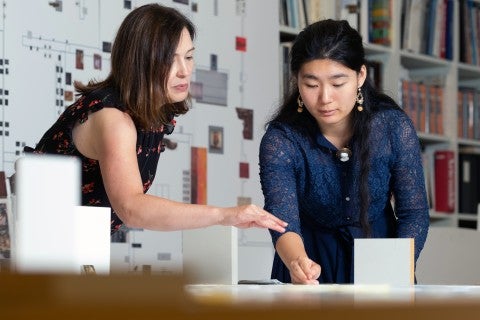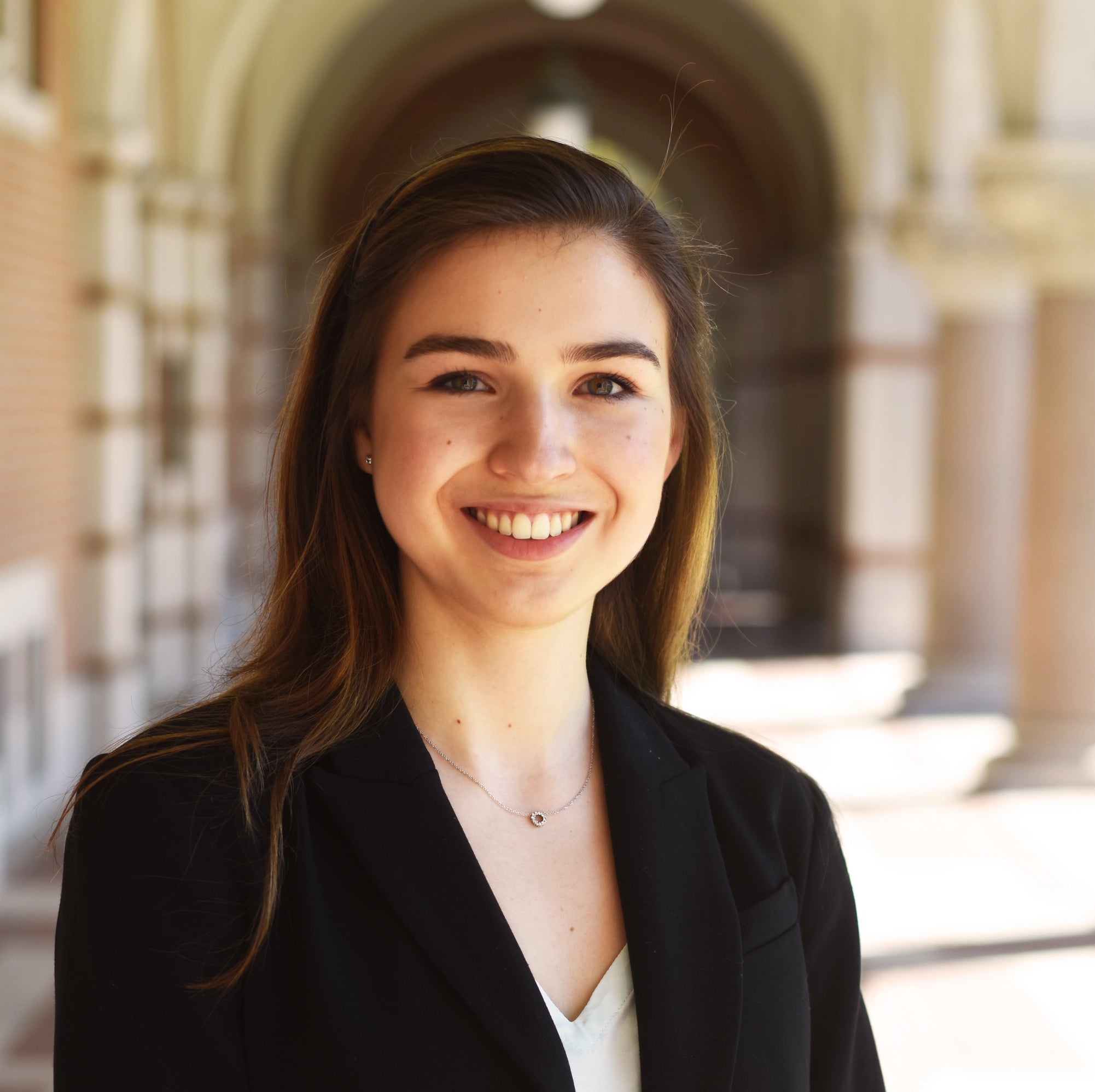When Sofia Gereta (Martel College ’20) began her journey at Rice, she never expected to graduate with a major in Medieval and Early Modern Studies (MDEM). Complemented by minors in Jewish Studies, Biochemistry and Cell Biology, her Rice experience encompassed the best of both worlds: an intellectually stimulating foray into the humanities and a robust pre-med education that have both ultimately led her to continuing her education at Dell Medical School at the University of Texas at Austin.
As a first-year student at Rice, Gereta says she was searching for opportunities to develop skills beyond those taught in her pre-med biology and chemistry classes. In spring 2018, she enrolled in Coexistence in Medieval Spain, a course taught by Maya Soifer Irish, associate professor of history and director of the Medieval and Early Modern Studies Program in the School of Humanities. This class had the opportunity to visit historic sites in Madrid and Toledo, Spain, during spring break. While abroad, the class delved deeper into the cultural composition of medieval Spain by studying sites where Islam, Judaism and Christianity intersected.
From that point on, Gereta was immersed in the Middle Ages, an oft-overlooked but rich chapter in European history.
“There’s the running joke about the ‘Dark Ages’ where people think that not much happened during that time period, which I think is kind of ridiculous, really — it's like 1,000 years of history,” she says. “That period has continued to shape the way that we relate to certain things today, it was a time period where the world's most influential religions were nurtured in form. So, to think that not much happened is first of all, not true. And second, you're training yourself away from a wealth of knowledge or resources.”
Gereta knew from the beginning that she wanted to attend medical school. As she discovered, humanities and STEM coexisted together throughout her Rice experience: one fulfilling personal passion, and the other bolstering her professional pursuit.
“I did the [Medieval and Early Modern Studies] major to fulfill my other interests, not necessarily trying to make it line up with medicine, but I think it still has in unexpected ways,” she says. “When you learn a patient's story, you have to figure out how to present that story in a cohesive and connected manner,” Gereta says. “You're basically digging for information from resources like the patient themselves, anyone else who they might be bringing to their appointment, or their past medical history... What you're doing is sorting through evidence and putting together a story that fits your diagnosis and illness script, and that's in many ways very similar to what you would be doing in humanities research.”
For instance, Gereta’s minor in Jewish Studies, in addition to her study of medieval religions, has emphasized the significance of religion in patients’ life histories.
“It gives you a greater appreciation for the religion, its traditions and its nuances... you understand that those have come from somewhere [and] that it didn't just develop overnight. I think that has helped me relate to patients more and better understand where they're coming from.”
Gereta has also gleaned practical skills through research projects and seminars in the humanities. She admits that her writing was weak upon her arrival at Rice, and her persistent interest in humanities courses significantly helped her strengthen her communicative ability.
“It was an interesting progression to force myself to do those skills throughout undergrad, only to end up liking it by the end,” Gereta says.
While the medical field is not perceived as being particularly writing intensive, Gereta says that this is somewhat a misconception, and that writing has played an important role in her medical education thus far. According to Gereta, the medical field offers plentiful opportunities to publish individual research. She says that although the literature genre and writing styles are different, her background in humanities has equipped her to digest and produce long pieces of written research relatively quickly and concisely.
For future Rice students who may be interested in studying both medicine and the humanities, Gereta advises taking advantage of the time and flexibility that the undergraduate experience offers.
“Don't be afraid to just take a class that has nothing to do with the rest of your interests, and see where that takes you,” she says. “In medical school, your time is very limited — you don't have time to pursue passion projects in the same way that you might have in undergrad. So, don't worry about things like what kind of grade you're going to get in the class — worry more about what kind of skills that class is going to teach you, and what you are going to walk away with as you go forward.”


